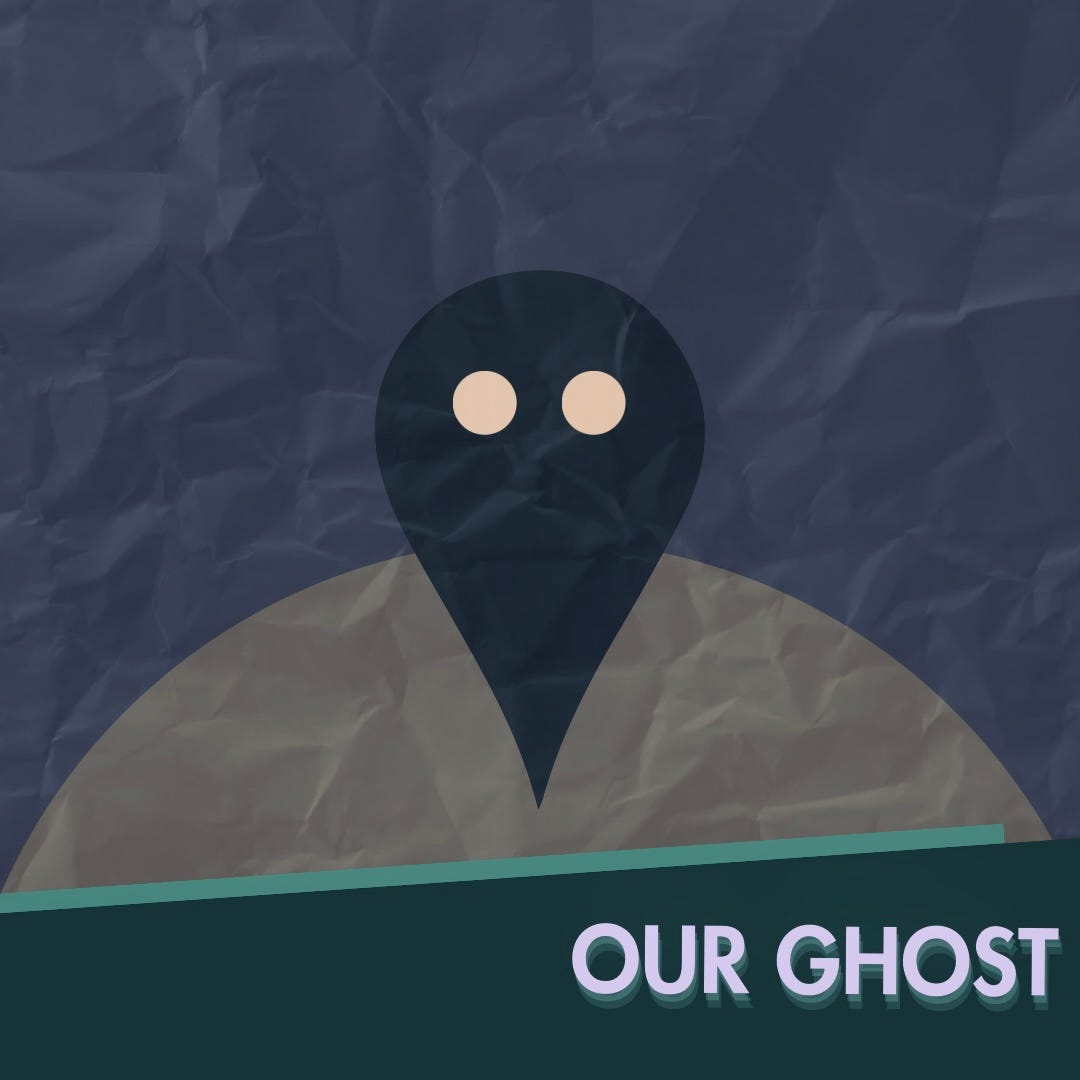Our Ghost: Introduction
The spirit of an age is what animates it. The ghost of an age is what it’s haunted by.
The German word Zeitgeist is often translated as the Spirit of the Age. A similar concept might be called Our Ghost.
The zeitgeist – as you may already know – is the overall mix of thoughts, ideas and concepts that seem to dominate a certain era. Around the year 2000, people might have included internet startups and metrosexuals as part of the zeitgeist. In 2024, we might think of artificial intelligence and social justice.
But the thing I’ve been thinking about recently is slightly different to this. I think there are times when we sense something similar to a zeitgeist, which still remains slightly apart from it. Generally, these are ideas – and usually uncomfortable ones – which something about the times we live in force us to confront, although not necessarily to voice. The thought of nuclear war might re-emerge at times of heightened international tension, for example.
My sense is that the word spirit does not really speak to this discomfort. To me, it sounds like it means something like inspiration or enthusiasm: something which makes us want to go out and discover new things, as new possibilities unfold.
But the concept I’m talking about isn’t that sort of spirit, not really. It’s closer to being the kind of spirit which shows up to admonish Ebenezer Scrooge for his misspent life, as he desperately tries to pretend it isn’t there.
It’s closer to being a ghost.
A double with a twist
To back up a bit, and talk about language. The fact we even have two words – ghost and spirit – to describe these incorporeal creatures is because of a feature of the English language called the double register. Like most languages, German doesn’t have this: it just makes do with geist.
But modern English is descended from a posh and a not-posh language smashed together: one spoken by its Norman conquerors, another by the people who they conquered. In many cases, two words survived for much the same thing, each with slightly differing connotations. Ghost and spirit form just one example.
And in modern English, I think they are meaningfully different things. To me, a ghost seems a lot more tangible than a spirit: immaterial, but also still pretty immediate.
Perhaps a spirit is what haunts you as an idea, and a ghost provides a window into how the world might really be. An academic might talk about the spirits they are expert in, which dwell in some very far off place or time. Meanwhile, someone wiser is boarding up their windows— they know full well the ghosts are coming now.
A ghost with a chance
So the thing I want to talk about is a ghost of this second type. It’s an idea which is grim, and dark, and depressing. I don’t think I can get around that.
All the same, I expect its time is coming. I don’t think it can be repressed for too much longer. It is too implicit in our fears around both climate change and artificial intelligence, although it is not exactly a part of either thing.
It’s also not something I really wanted to write about— but in the end, I felt I didn’t have much of a choice. The existence of ghosts is not a matter of the imagination. They are there, whether you want them to be or not.
I don’t think this ghost is a new idea. I haven’t discovered anything, and wouldn’t claim to. But an old idea can remain obscure for a long time. Some old ideas are so strange and unfamiliar that they might never be widely believed, even when they represent our best understanding of the world. Scientific consensus says that whether two events happen at once is a question of where you are standing. All the same, wider society does not believe it.
But some old ideas are resisted because they are threatening: they are too challenging to our understanding of the world or our place in it. These might be kept at a distance until they can no longer be easily dismissed or ignored. And so once an idea which haunts us becomes codified and accepted, it often turns out it has been with us all along.
The classic example of this is the theory of natural selection, which was in the air for some time before Charles Darwin. It came to be formulated more than once, and was anticipated by several similar ideas. In fact, it seems to turn up now and again in very ancient works, half seen and still uncodified. Similarly, now that artificial intelligence is on our minds, some of its more ominous aspects turn out to have been predicted 150 years ago— in Samuel Butler’s Erwheon.
All this is to say that none of what follows is original, and a lot of it is very old indeed. A ghost is in the air before it is fully known or described: it is only described in impressions and brief sightings. The only thing we can do is record it, when we feel that its time is coming.
And so that’s what I’ve tried to do here, as best as I can.


